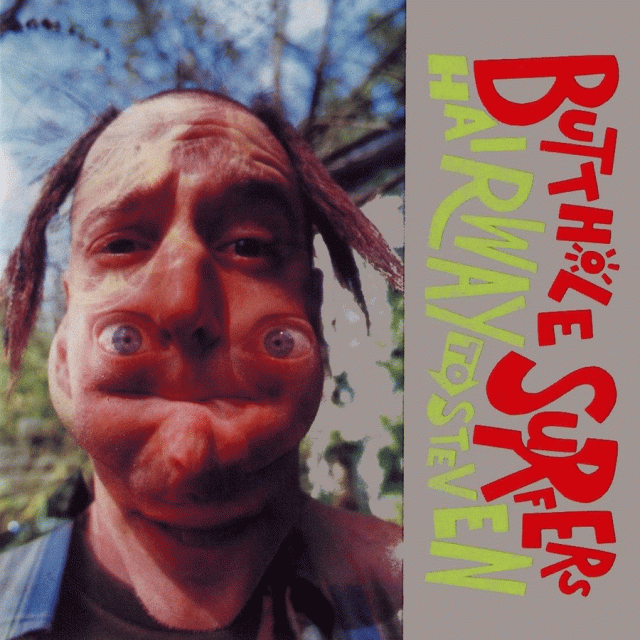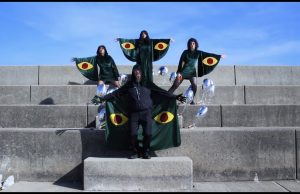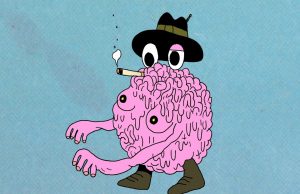Two decades ago, new (and old) albums from John Mellencamp, Staind, Butthole Surfers and others were spinning away in my portable CD player. Here’s what I had to say about them back then (with some minor editing):
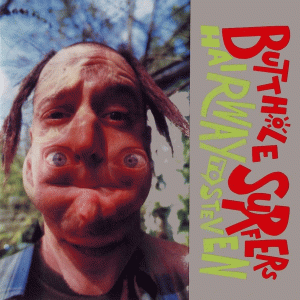 Butthole Surfers
Butthole Surfers
Psychic … Powerless … Another Man’s Sac | Rembrandt Pussyhorse | Locust Abortion Technician | Hairway To Steven Remastered Editions
“Do not try to party with Gibby. Trust us, you can’t handle it.” One year when I was in Austin, Tex., for SXSW, I read that in a local paper. It was one of several tips for music biz types visiting town — and I have no doubt it was sound advice.
Gibby, if you don’t know, is the notorious Gibby Haynes, frontman, lead shotgun player and chief acid casualty of the Butthole Surfers, a merry band of psychedelic avant-punks who have long been among Austin’s favourite sons. For a while they were best known for Pepper, their Beck-ish (and only) hit. And Gibby was infamous as Kurt Cobain’s roommate during his final days in rehab.
But the Buttholes’ story begins much earlier. Back in the early ’80s, Haynes — the son of a kiddie-show host — and the Surfers (chiefly guitarist King Coffey and drummer Paul Leary) were living in the desert, gobbling drugs by the handful, and recording some of the strangest songs ever put to vinyl. Like, for instance, The Shah Sleeps In Lee Harvey’s Grave, in which Gibby bellows, “There’s a time to live / And a time to die / I smoke Elvis Presley’s toenails when I want to get high.” Maybe it’s no wonder Kurt went over the wall.
Somehow, somewhere, between the drugs and their hallucinatory live shows — which included genetic-mutant dancers, twisted film projections and Gibby discharging a 12-gauge onstage — the band issued four magnificently demented indie albums that have been in and out of print as often as Charlie Sheen has been in and out of detox. Right now, they’re available, remastered and re-released by the Surfers themselves. Trust me, you can handle them:
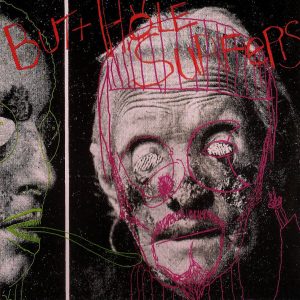 Psychic … Powerless … Another Man’s Sac (1984)
Psychic … Powerless … Another Man’s Sac (1984)
I’d Call It: Electric Kool-Aid Acid Test Pressings. When this came out, the Surfers had issued two EPs, but this was their debut full-length — though no one can accuse them of selling out to the music biz. Not unless you’ve heard a Top 40 hit lately with flushing toilets, hardcore mayhem, trance-like drones, psychobilly freakouts, primal drums, songs about scoring heroin in Mexico and vocals that are equal parts burping, spitting, grunting and yelping.
Best Lyric: “I could have a real good time, if I had a gun.”
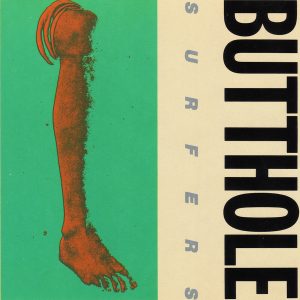 Rembrandt Pussyhorse (1986) / Cream Corn EP (1985)
Rembrandt Pussyhorse (1986) / Cream Corn EP (1985)
I’d Call It: Through The Pus, Darkly. “There’s a creep in the cellar, and I’m gonna let him in,” are Gibby’s first words. Consider them words of warning; this is the Surfers’ bleakest outing, full of downbeat tempos, reverb-soaked melodies, spooky organs, agitato violins, horror-flick effects and groaning, despondent vocals. This album makes me itch — and I mean that as a compliment.
Best Lyric: “I’m moving down to Florida / And you know I’m gonna have to potty-train Chairman Mao.”
 Locust Abortion Technician (1987)
Locust Abortion Technician (1987)
I’d Call It: Surfers, Bloody Surfers. Gibby and the boys go metal — in their own bizarre way. From the opening notes of Black Sabbath spoof Sweat Loaf, LAT careens into a universe of cheesy space-rock bombast, guitar-god riffage, blooz sludge, backwards tape effects, devilish spew and slo-mo, indecipherable Iron Man vocal treatments. Like every cliche metal album, it even has a middle eastern passage.
Best Lyric: “If you see your mom this weekend, don’t forget to tell her … SATAN!”
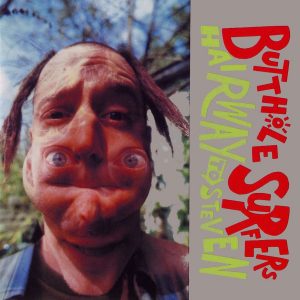
Hairway To Steven (1988)
I’d Call It: Surrealistic ’Dillo. The first of the modern Surfers albums (and the last before their major-label deal) finds them getting it together and putting it all together, fusing the elements of their other albums — the proto-industrial grind, the barnyard sounds, the possessed vocals, the black tar guitars — into strong songs that are eminently listenable without sacrificing their trademark sonic quirks. Plus you gotta love the title.
Best Lyric: “I saw an X-ray of a girl passing gas.”
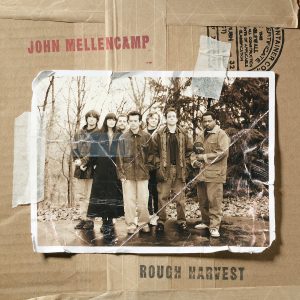 John Mellencamp
John Mellencamp
Rough Harvest
For his last record, John Mellencamp tried the loops and samples of electronica on for size — and to us at least, it seemed a pretty poor fit with his blue-collar Midwestern rock. This time, John’s returned to his musical roots, and the results are as comfortable as an old plaid work shirt. Backed by a guitar-and-fiddle-based band, Mellencamp revisits some of his favourite tunes, stripping them down into moody, rough-hewn acoustic gems and simple bar room rockers. Human Wheels, Jackie Brown and Rain On The Scarecrow all take on new life here, reborn as relaxed, Sunday-afternoon porch jams. Mellencamp has always been uncomfortable playing rock star; here, in his own musical landscape, he finally seems at ease.
 Staind
Staind
Dysfunction
Thank Fred Durst for Staind — or blame him. The Limp Bizkit boy is this Boston-area grunge-metal outfit’s mentor: He got them signed. They’re on the same label. They even have the same producer. Thankfully, they don’t have the same sound. Staind isn’t as limp as Bizkit. More metal than rap, their broodingly intense sound — think White Zombie meets Pearl Jam — comes with a heaping helping of dark, post-grunge guitar shredding, downwardly spiralling melodies and self-loathing lyrics that seldom get cheerier than, “Look at me, I’m so pathetic.” Geez, boys, if you think things are bad now, just wait till the Limp Bizkit backlash kicks in.
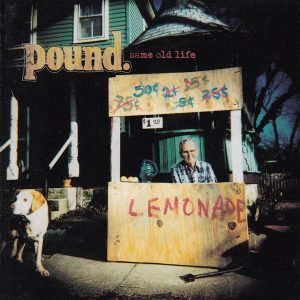 Pound
Pound
Same Old Life
With a hammer-heavy handle like Pound, you might figure these New York boys would pack some sonic wallop. Well, you’da figured wrong. If there was truth in advertising, these guys would be called ounce; quarter-pounder tops. And make that with extra cheese; this debut disc is rotten with lightweight pop-rock melodies, jangly guitars, look-on-the-bright-side lyrics, Hootie hooks and happy harmonies. Even the occasional classic-rock chorus can’t give this sucker any more meat than your average Happy Meal.
 Widespread Panic
Widespread Panic
’Til The Medicine Takes
These Georgia-rock jam-masters say this seventh album is their tightest, most commercial record yet. Of course, tight is a relative term — in this case, it means most songs have been kept under the six-minute mark. So Widespread Panic fans need not panic; there’s still plenty of cosmic elbow-room for the southern-fried wonks — sort of a cross between the Dixie Dregs, Phish and a lite-rock Allman Bros. — to stretch out and noodle like Catelli. Still, we can pick out verses, catchy choruses and even the odd nod to the ’90s, like (gasp!) scratching, so we gotta give ’em points for trying. Heck, if they get any more commercial, somebody might actually play one of the songs on the radio …
 Blinker The Star
Blinker The Star
August Everywhere
Canuck grunge-rocker Jordon Zadorozny hit the rock ’n’ roll Lotto when Hole’s Melissa auf der Mar (his former bandmate in Montreal’s Tinker) brought him out to L.A. to help write songs for Celebrity Skin. Only one collaboration, Reasons To Be Beautiful, ended up on the disc — but if his other ideas sounded anything like August Everywhere, Courtney and co. really missed the boat. Like recent records from Fountains Of Wayne and Ben Folds Five, JZ’s third outing is a sophisticated power-pop gem of the highest order, glimmering with lustrous melodies, bittersweet lyrics and fiery dynamics. Recalling ’70s icons from The Cars to Steely Dan, Zadorozny’s rich songcraft and lush arrangements don’t necessarily have you tapping your foot or nodding your head — instead, they just make you listen.
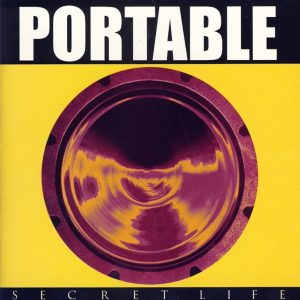 Portable
Portable
Secret Life
Modern-rock? Power-pop? Post-grunge? Alt-rock? Depending on which track you cue up, L.A. quartet Portable could easily fit into any one of these convenient pigeonholes. Which is precisely what’s wrong with their debut album. Sure, their Nirvana-meets-Cheap Trick tunes rock hard enough, the drums pound enough, the guitars buzz enough and singer Chance’s voice is pleasant enough. Problem is, none of it is original enough. Strip away all the tired cliches and recycled riffs and Portable is left with less individuality than a Stepford wife.
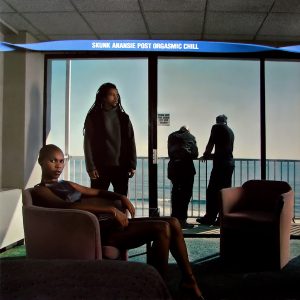 Skunk Anansie
Skunk Anansie
Post Orgasmic Chill
Leopards can’t change their spots, but these Skunks sure seem eager to change their stripes. On their third disc, chrome-domed shrieker Skin and her agit-prop power trio roam into new sonic territory, adding softer textures, commercial melodies and some subtle orchestral, electronica and ethno-rock shadings to their standard-issue political power-pummel. A noble effort — but one that doesn’t always work. While flat-out rockers like On My Hotel TV pack all the punch of early faves like Selling Jesus, buzz-kill ballads like Tracy’s Flaw slowly fritter away the disc’s momentum until Skunk Anansie’s Post Orgasmic Chill ends up leaving us cold.
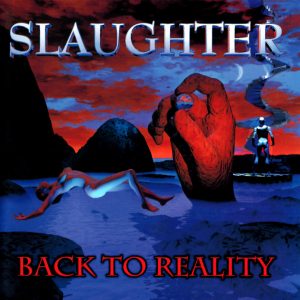 Slaughter
Slaughter
Back To Reality
I presume the title refers to Slaughter’s return to the rock ’n’ roller-coaster after the tragic death of guitarist Tim Kelly in a 1998 car crash. But in actual reality, they’re not just back, they’re new and improved. Thanks to replacement axeman Jeff Blando, this is Slaughter’s best album in years, not to mention one of the most consistently listenable classic-rock discs in some time. Mark Slaughter’s voice is still as high as Vince Neil after too many shots to the groin, the band is still tighter than a snare skin and Blando’s chunky riffs and Van Halen pyrotechnics teach these old dogs a few new tricks. Back To Reality just might be Slaughter’s ticket back to the future.
 Macha
Macha
See It Another Way
Any seasoned traveller knows you can’t fully appreciate an exotic locale on the first visit. You have to go back a few times, get to know your way around and get acquainted with the local colour to really make the most of a place. Take the Athens, Ga., quartet Macha: Their initial foray into what critics have dubbed Indo-rock and Moroccan roll — underground American music augmented by Indonesian zither, gongs and hammered dulcimer — produced one of 1998’s most innovative, intriguing debut discs. But this return trip is where the fun really begins. Last year’s tentative steps have now been replaced with sure-footed songcraft that confidently, fully integrates the various styles and sounds into an intoxicating, trancy swirl that suggests R.E.M. jamming with Balinese street musicians. It’ll carry you away — and keep you coming back for more.
 Kevin Coyne
Kevin Coyne
Sugar Candy Taxi
Eccentric legend Kevin Coyne was reportedly asked to sing for The Doors after Jim Morrison died. Actually, he’s more equipped to take over for Van Morrison — if Van The Man went in for improvising entire records off the top of his head. That’s precisely how Coyne has recorded umpteen albums, including Sugar Candy Taxi — start the tape, let him go and stop when he’s done. Funny thing is, these simple, rambling songs, which range from bluesy acoustic numbers and skewed rockers to soulful piano ballads, sound almost as good as anything countless singers slave over. Coyne’s wellspring of talent may run close to the surface, but it’s still plenty deep.
 The American Analog Set
The American Analog Set
The Golden Band
Every musician knows that playing low, slow and quiet is tougher than playing fast, loud and hard. What’s even tougher is to get a slo-mo groove on. But Texas ensemble American Analog Set knows how to play that funky music slight, boy. Which is not to say that they’re Wild Cherry on Valium; just that these relaxed, slightly jazzy pop lullabies will have you nodding along instead of nodding off. That’s partly due to their talented drummer, who knows how to work a set of brushes. But singer/guitarist Andrew Kenny is the real hero here; his breezy, chorus-free tunes, subtly minimalist picking and shy-guy vocals are the real reasons Golden Band glistens.
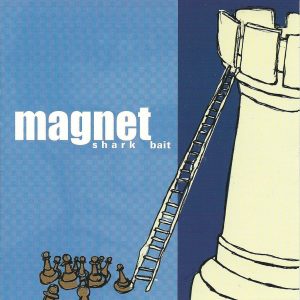 Magnet
Magnet
Shark Bait
If you really can tell a man by the company he keeps, then Magnet’s Mark Goodman is a hell of a guy – or at least a hell of a songwriter. Case in point: The drummer on his last album was Mo Tucker from The Velvet Underground. This time out, the guest list is just as cool: David Lowery and members of his band Cracker, along with folks from Sparklehorse, Gutterball (and Tucker again) all show up to back up Goodman on a dozen slices of intelligent, well-crafted eclecto-pop. And whether it’s a rootsy, Wilco-ish number or a spindly Pavement-type track, rest assured Goodman gets by with a little help from his friends.
 Cobra Verde
Cobra Verde
Nightlife
Cobra Verde leader John Petkovic is a Cleveland radio host, an entertainment writer, an online ’zine editor, a former aide to a Yugoslavian prince, an ex-Guided By Voices guitarist — oh, and the new saviour of rock ’n’ roll. It doesn’t matter if you buy that last credit or not; he does, and that’s all that matters. And I’ve gotta admit, Nightlife, his glam-rock masterpiece of a third album, has made me a believer. On track after track, Petkovic expertly descends into the velvet goldmine and emerges dusted with sequins, bearing ’70s-vintage nuggets inspired by Iggy, Roxy Music, Bowie, T. Rex, The Who and The New York Dolls, which he sculpts into sexy, feather-boa anthems for the next millennium. All hail the new lizard king.
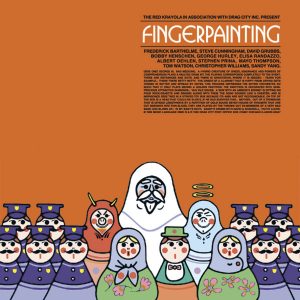 Red Krayola
Red Krayola
Fingerpainting
Fingerpainting is as apt a description as any for the music of Mayo Thompson: It’s messy and disorganized, crudely drawn with broad strokes and vivid colours, yet still retains a rough, simple beauty. After 34 years and who knows how many albums of his avant-weird, post-everything collage-rock — free-association lyrics, delicate streaming melodies, challenging sonic freakouts, ambiently recorded noodling — Fingerpainting finds Mayo coming full circle, recycling songs rejected from his 1966 debut. And even the ’90s musicians (including Gastr Del Sol’s David Grubbs and fIREHOSE’s George Hurley), technologies and sensibilities at work here only prove that the more Thompson changes, the more he stays the same.
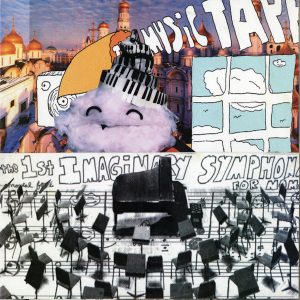 The Music Tapes
The Music Tapes
1st Imaginary Symphony For Nomad
The Elephant 6 imprint is the tipoff here: Like every CD from this label / music collective of Olivia Tremor Control, Neutral Milk Hotel and Apples In Stereo, Music Tapes is indie-pop from way out in left field. Tapes players Julian Koster and Jeremy Barnes are from NMH, but this disjointed, crazy-quilt opus more readily recalls OTC’s odder moments. Using everything from ancient radio and TV samples to bouncing basketballs, the duo jumble ’60s Beatle-pop, DIY chamber-folk and post-psychedelia into a hallucinatory concept piece about (listen up, now) a frustrated inventor who creates TV to turn everyone into trivial failures like himself, and then traps his son Superman in the set, unaware that TVs are really alien beings who travel the cosmos observing other races, and want to free the trapped hero. It’s part fairy tale, part fever dream — and wholly unforgettable.
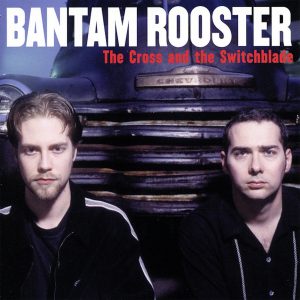 Bantam Rooster
Bantam Rooster
The Cross And The Switchblade
This Michigan garage-punkabilly outfit has just two members — a drummer and a singer/guitarist. But it still has everything it needs to kick out the jams: Primal, pounding drums that Iggy Pop could jive to, rip-snorting Detroit metal guitars, a singer who sounds like he’s caught in his zipper, and sideburns longer than some of their tunes. On this sophomore disc, they use that ammunition to engineer a wild shotgun wedding between The MC5, The Stooges, The Cramps and The Oblivians — with themselves as best men, wedding band and illegitimate offspring all rolled into one. No wonder they’re the cocks of the rock walk.













